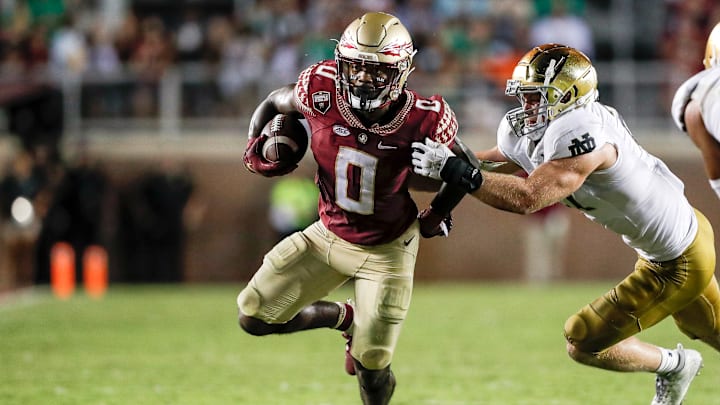Late BCS Era (2009-2013)
In its final years, the Bowl Championship Series played out its mandate as followers of the sport increasingly looked ahead to a future with a four-team bracket. Cinderella stories became commonplace, if shunted off to the margins.
That is not to say that these years led to any less excitement, though, or that a 12-team bracket would offer any less entertainment. Here are the most exciting matchups from the last years of the BCS era.
2009
#8 Ohio State Buckeyes (10-2 Big Ten champion)
vs.
#9 Georgia Tech Yellow Jackets (11-2 ACC champion)
In 2009, three different major conference champions finished behind both Mountain West winner TCU and WAC champ Boise State in the final BCS standings. The ACC especially saw its stock slide at this juncture of college football history, with pollsters skeptical of Georgia Tech. The Yellow Jackets would head to Columbus in a hypothetical playoff for an opening-round showdown against another overlooked conference champion, Big Ten winner Ohio State.
2010
#5 Stanford Cardinal (11-1 Pac-10 runner-up)
vs.
#12 Virginia Tech Hokies (11-2 ACC champion)
A three-touchdown loss at Oregon in early October relegated Stanford to runner-up status in the last year of the Pac-10 before it expanded to 12 teams. The Cardinal were still viewed as the fifth-best team in the country heading into the postseason. Had a playoff existed at the time, Stanford would host ACC champ Virginia Tech. Imagine the hype leading up to this game as Jim Harbaugh was actively being courted by the San Francisco 49ers. Had Stanford advanced deep in the playoff, would Harbaugh have moved on to the NFL?
2011
#5 Alabama Crimson Tide (11-1 SEC West runner-up)
vs.
#12 Clemson Tigers (10-3 ACC champion)
The early years of the College Football Playoff were marked by classic duels between Alabama and Clemson, often in the championship game. Had a playoff existed, they might not have played all those showdowns... but their non-conference rivalry also might have started a few years earlier. Clemson claimed the ACC crown in 2011 as a surprise title game winner over Virginia Tech. For their efforts they would earn a trip to Tuscaloosa to square off against a Crimson Tide squad that missed the SEC title game after finishing second in the west behind LSU.
2012
#5 Notre Dame Fighting Irish (12-0 independent)
vs.
#12 Northern Illinois Huskies (12-1 MAC champion)
The stipulations of the College Football Playoff's 12-team bracket mean that Notre Dame will never get a first-round bye as long as they remain independent. That means the Fighting Irish would have hosted a first-round game in 2012 despite being the only undefeated team left in the country after the regular season. That alone would give ESPN fodder for weeks leading up to the contest, but their opponent would've also made some noise—a 12-1 Northern Illinois team that in real life became the first BCS Buster with a regular season loss on their record.
2013
#7 Ohio State Buckeyes (12-1 Big Ten runner-up)
vs.
#10 Oregon Ducks (10-2 Pac-12 North runner-up)
In real life, the Ducks and Buckeyes met the following season in the inaugural College Football Playoff championship game. In a hypothetical world with a 12-team playoff, that would've been a rematch of their previous playoff showdown a year earlier. After finishing just behind Stanford in the Pac-12 North, Oregon was shunted off to the Alamo Bowl that season. Imagine the hype if they instead headed to Columbus to face an Ohio State team trying to rebound after falling in the Big Ten championship to Michigan State.
